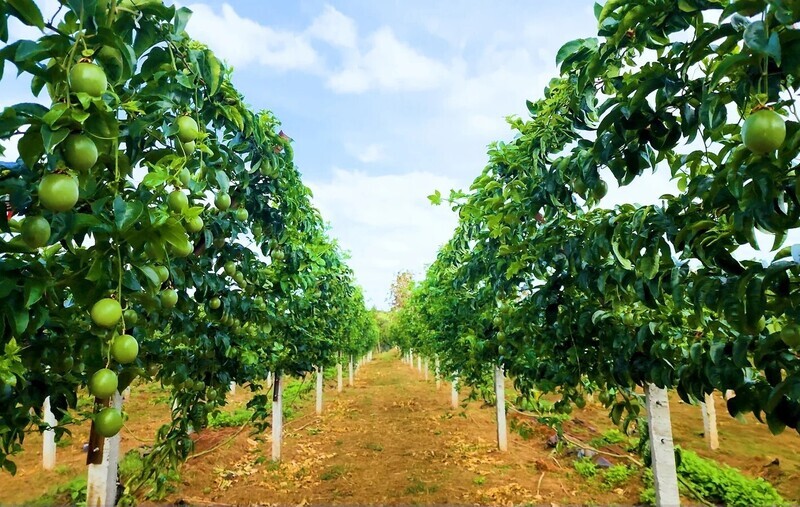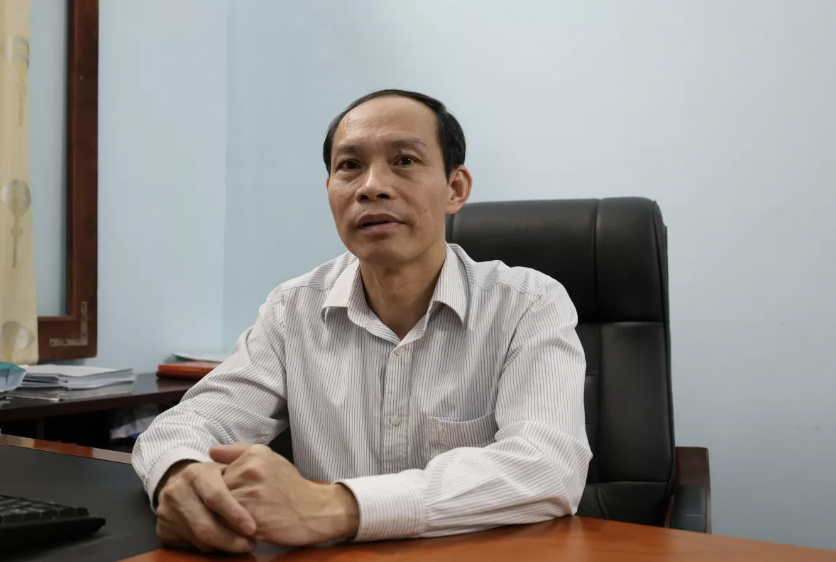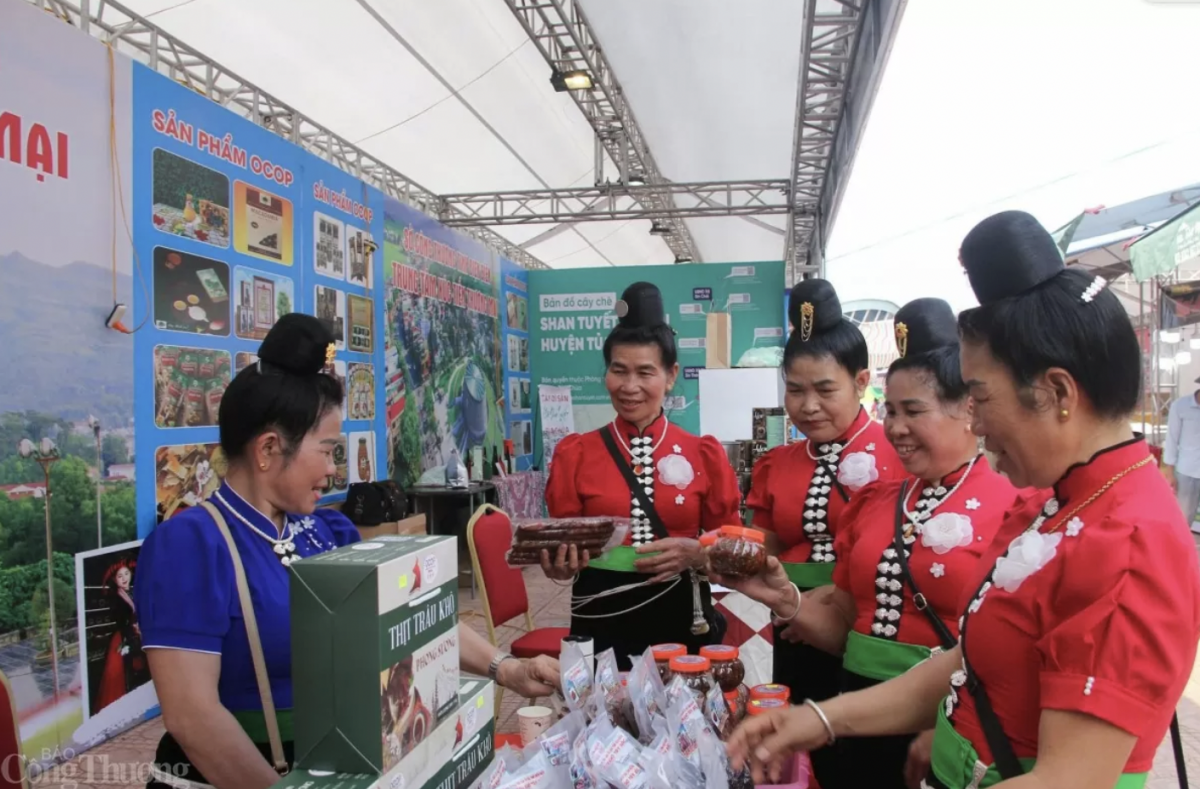
Vietnam’s fruit and vegetable exports to EU triple in four years
19:05 | 23/03/2025 20:40 | 23/02/2026Trade
The northwestern mountainous province of Dien Bien is home to a wide variety of highland products rich in cultural identity of ethnic communities. However, for these items to move beyond being simply “local specialties” and reach national and international markets, they need strategic guidance, from policy and infrastructure to trade promotion and technology.
Vietnam Economic News’ reporter has recently spoken with Nguyen Van Dung, Deputy Director of the Dien Bien Provincial Department of Industry and Trade, to learn about the province’s concrete efforts, current strategies, and vision for the sustainable development of products from ethnic minority regions.
What has the Dien Bien Provincial Department of Industry and Trade done to promote the sale of agricultural and specialty products made by local ethnic minority communities?
Dung: In recent years, to boost the sale of agricultural and specialty products of Dien Bien Province, especially those made by ethnic minority communities, we have implemented a series of coordinated solutions focusing on three main pillars: trade promotion, e-commerce application, and industry promotion support.
 |
| Nguyen Van Dung, Deputy Director of the Dien Bien Provincial Department of Industry and Trade. Photo: Ngoc Hoa |
First, we have actively organized and participated in trade fairs, promotional events, and exhibitions both within and outside the province. These activities provided opportunities for enterprises, cooperatives, and producers to showcase their OCOP products, signature agricultural goods, and standout rural industrial items to consumers and potential partners.
A notable highlight was the establishment of the OCOP Product Display Center in Nam Thanh Ward, Dien Bien Phu City. This venue features over 460 products from 40 entities, including nearly 50 OCOP items produced by 30 businesses and cooperatives. The center has become a key connection point, attracting attention from domestic distributors as well as international delegations, particularly from Laos.
In parallel, we have emphasized the adoption of e-commerce. In 2024, we supported five businesses in building websites and another five in joining e-commerce platforms like Shopee and Lazada. We also partnered with the provincial police department to integrate images of 71 out of 72 OCOP products into the Dien Bien Smart app, promoting them via VneID, a platform with wide public reach.
Training is another critical area. In collaboration with the Vietnam Trade Promotion Agency under the Ministry of Industry and Trade, we have organized training sessions on livestream selling, digital branding, and more. These sessions have helped ethnic minority producers embrace market-oriented thinking and become more proactive in digital commerce.
How would you assess the current production capacity of local facilities and cooperatives, and what support is being provided to address bottlenecks?
Dung: Most production units in Dien Bien are small-scale household businesses with limited output, which poses challenges in meeting quality standards and ensuring a stable supply. This is one of the biggest bottlenecks that prevents highland products from accessing larger markets, especially modern distribution systems and export channels.
For macadamia products in particular, the biggest challenge is the fragmented and poorly connected distribution chain. Most households and cooperatives are still focused solely on production, lacking market experience and long-term contracts with distribution partners. Currently, macadamia nuts are mainly sold in raw form, with little to no deep processing, resulting in low added value.
In addition, the lack of infrastructure for processing and preservation is another major bottleneck. At present, there are no large-scale macadamia processing plants in the locality, while transporting the nuts to other places for processing increases costs and reduces competitiveness.
To address this, we have made effective use of both national and local budgets for industry promotion to help the production units adopt advanced machinery and equipment. We also actively encourage producers to participate in value chain models, from developing concentrated raw material areas to improving preservation, deep processing, and packaging. These are essential steps to qualify for central and provincial support policies and to meet increasingly stringent market standards.
The department coordinates closely with related agencies, such as the Department of Agriculture and Environment, the Agriculture Promotion Center, and the Provincial Center for Investment, Trade and Tourism Promotion, to form a comprehensive support chain. This includes technical assistance, brand building, trade promotion, and market linkage. Our goal is not only to support, but also to create a sustainable ecosystem for highland products.
What further measures will the Department implement to boost the sale of agricultural and specialty products of ethnic minority communities?
Dung: To further promote the sale of these products, the Department will continue to implement several strategic solutions:
We will organize more trade promotion programs and assist ethnic minority and mountainous communities in product marketing. This includes supporting households, organizations, and enterprises in Dien Bien to participate in trade fairs aimed at promoting the province’s OCOP products, facilitating the exchange of production and business experience, and seeking opportunities for investment cooperation, joint ventures, partnerships, and the development and sale of the province’s signature products.
 |
| In addition, the province places special emphasis on applying information technology to promote local specialty products, effectively leveraging e-commerce platforms and digital tools to enhance the visibility of local brands. Photo: Ngoc Hoa |
We will also strengthen trade promotion through regional trade connection conferences, which play a crucial role in linking suppliers in the Northwestern region with exporters. These events help connect producers of specialty goods in the region with major distributors and retail centers across the country, thereby meeting consumer demand.
In addition, the province places special emphasis on applying information technology to promote local specialty products, effectively leveraging e-commerce platforms and digital tools to enhance the visibility of local brands. Accelerating digital transformation in trade promotion activities not only helps bridge the gap between urban and remote areas, but also gradually enables businesses and farmers to access a more modern, civilized, and equitable business environment.
Alongside traditional methods of buying and selling, bringing agricultural products and highland specialties of ethnic minority communities onto e-commerce platforms has opened a new path. Products are no longer limited by geography, they can now reach consumers across the country in a direct and transparent manner. E-commerce not only helps promote local brands effectively in the digital environment, but also enables producers to overcome distribution barriers, access broader markets, reduce intermediary costs, and thereby increase product value.
At the same time, this process has driven a profound shift: highland residents are beginning to engage with technology, learning how to livestream to sell products, update images, write product descriptions, and interact with customers. What once seemed out of reach has now become a set of life and business skills. Many young people from ethnic minority communities have even launched successful startups through their digital storefronts.
In the time ahead, the provincial Department of Industry and Trade will continue to promote programs that support e-commerce development, especially in ethnic minority areas. We will collaborate with reputable e-commerce platforms to expand opportunities for product showcase, while also supporting local people in setting up online shops, building brand images, and learning how to operate and make full use of digital platforms. Indeed, e-commerce is not just a sales channel. It is an opportunity for highland specialties to assert their place in the modern market economy.
Equally important is the development of rural commercial infrastructure, particularly in remote areas. We propose prioritizing investments in highland markets, small-scale logistics centers, and both fixed and mobile product display sites to bring goods closer to the people and facilitate sales.
Finally, we will continue to effectively implement national and local industry promotion projects. Priority will be given to supporting the adoption of advanced machinery and technology for deep processing of agricultural products, especially those unique to ethnic minority communities, to improve value, productivity, quality, and competitiveness of these products, meeting consumer demands both within and beyond the province.

19:05 | 23/03/2025 20:40 | 23/02/2026Trade

19:05 | 23/03/2025 20:38 | 23/02/2026Trade

19:05 | 23/03/2025 20:30 | 23/02/2026News and Events

19:05 | 23/03/2025 20:29 | 23/02/2026News and Events

19:05 | 23/03/2025 20:14 | 22/02/2026News and Events